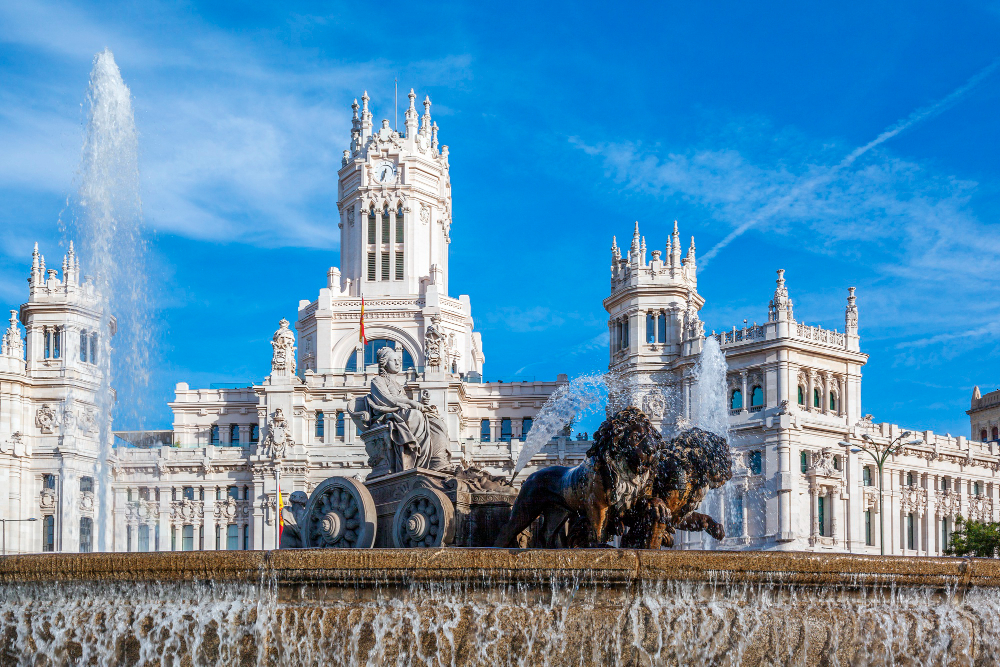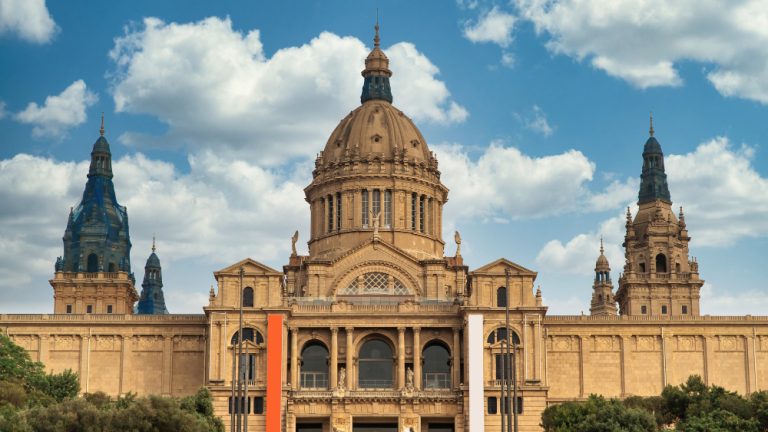Relocating to Spain is an exciting adventure that offers a blend of rich history, vibrant culture, beautiful landscapes, and a high quality of life. For Nigerians considering making this move, understanding the best cities to live in, the visa requirements, and the application process is crucial. This comprehensive guide covers everything you need to know to successfully relocate to Spain from Nigeria.
Why Relocate to Spain?
Spain is a diverse country known for its Mediterranean climate, historic cities, stunning architecture, delicious cuisine, and friendly people. Here are some key reasons why Spain is an attractive destination for relocation:
- Quality of Life: Spain boasts a high quality of life with excellent healthcare, education, and infrastructure.
- Cultural Heritage: Spain has a rich cultural heritage, with numerous UNESCO World Heritage sites, festivals, and traditions.
- Climate: The Mediterranean climate offers mild winters and hot summers, ideal for outdoor activities year-round.
- Cost of Living: Compared to other Western European countries, Spain has a relatively affordable cost of living.
- Work-Life Balance: Spaniards prioritize work-life balance, with a laid-back lifestyle and ample leisure time.
Best Cities to Live in Spain
Spain offers a variety of cities that cater to different lifestyles and preferences. Here are some of the best cities to consider:
1. Madrid
- Overview: As the capital city, Madrid is a bustling metropolis known for its cultural landmarks, vibrant nightlife, and economic opportunities.
- Attractions: Prado Museum, Royal Palace, Retiro Park, and Puerta del Sol.
- Lifestyle: Madrid offers a cosmopolitan lifestyle with excellent public transportation, diverse neighborhoods, and a range of dining and entertainment options.
- Job Market: Strong job market in finance, technology, and the service industry.
2. Barcelona
- Overview: Barcelona is famous for its unique architecture, beautiful beaches, and dynamic cultural scene.
- Attractions: Sagrada Familia, Park Güell, La Rambla, and Barceloneta Beach.
- Lifestyle: The city offers a blend of beach and urban living, with a focus on outdoor activities and cultural experiences.
- Job Market: Thriving in tourism, tech startups, and creative industries.
3. Valencia
- Overview: Valencia is a coastal city known for its futuristic architecture, historic sites, and the annual Fallas festival.
- Attractions: City of Arts and Sciences, Central Market, and Valencia Cathedral.
- Lifestyle: Valencia offers a relaxed lifestyle with beautiful beaches, green spaces, and a strong sense of community.
- Job Market: Growing in technology, logistics, and agriculture.
4. Seville
- Overview: Seville is the capital of Andalusia, known for its historic architecture, flamenco dancing, and warm climate.
- Attractions: Alcazar of Seville, Seville Cathedral, Plaza de España, and the Metropol Parasol.
- Lifestyle: Seville offers a traditional Spanish lifestyle with a focus on cultural heritage, festivals, and a slower pace of life.
- Job Market: Opportunities in tourism, education, and agriculture.
5. Malaga
- Overview: Malaga is a coastal city on the Costa del Sol, known for its beaches, historic sites, and vibrant cultural scene.
- Attractions: Alcazaba, Picasso Museum, and Malagueta Beach.
- Lifestyle: Malaga offers a mix of beach and city living, with a focus on outdoor activities, gastronomy, and arts.
- Job Market: Strong in tourism, real estate, and technology.
Visa Requirements for Relocating to Spain
As a Nigerian national, you will need a visa to relocate to Spain. The type of visa you need depends on your purpose of relocation, such as work, study, or family reunification. Here are the main types of visas and their requirements:
1. Work Visa
If you plan to work in Spain, you will need a work visa. There are several types of work visas depending on the nature of your employment:
- Highly Skilled Worker Visa: For professionals with high qualifications or managerial positions.
- Employee Visa: For general employment with a Spanish company.
- Self-Employed Visa: For entrepreneurs and freelancers.
Requirements:
- Job offers or contract from a Spanish employer.
- Proof of qualifications and experience.
- Health insurance coverage.
- Proof of financial means to support yourself.
- Police clearance certificate.
- Medical certificate.
2. Student Visa
If you are relocating to study in Spain, you will need a student visa. This visa allows you to stay in Spain for the duration of your studies.
Requirements:
- Acceptance letter from a Spanish educational institution.
- Proof of financial means to support yourself during your stay.
- Health insurance coverage.
- Proof of accommodation.
- Police clearance certificate.
- Medical certificate.
3. Family Reunification Visa
If you are joining a family member who is legally residing in Spain, you will need a family reunification visa.
Requirements:
- Proof of relationship (marriage certificate, birth certificate, etc.).
- Proof that the family member in Spain has sufficient financial means to support you.
- Health insurance coverage.
- Proof of accommodation.
- Police clearance certificate.
- Medical certificate.
How to Apply for a Visa to Spain
Applying for a visa to Spain involves several steps. Here is a step-by-step guide for Nigerian nationals:
- Determine the Type of Visa: Identify the type of visa you need based on your purpose of relocation (work, study, family reunification, etc.).
- Gather Required Documents: Collect all necessary documents based on the visa type. Ensure that all documents are translated into Spanish and notarized if required.
- Complete the Visa Application Form: Fill out the visa application form accurately. The form can be downloaded from the Spanish consulate or embassy website.
- Schedule an Appointment: Book an appointment at the Spanish consulate or embassy in Nigeria. This can usually be done online through their official website.
- Submit Your Application: On the day of your appointment, submit your completed application form along with all required documents. Pay the visa application fee, which varies depending on the type of visa.
- Attend an Interview: You may be required to attend an interview as part of the visa application process. Be prepared to answer questions about your purpose of relocation, financial means, and plans in Spain.
- Wait for Processing: The processing time for visa applications can vary. It is advisable to apply well in advance of your planned relocation date.
- Receive Your Visa: If your application is approved, you will receive your visa stamped in your passport. Ensure that you check the validity period and any conditions attached to your visa.
Things to Expect While Relocating to Spain
Relocating to a new country involves adapting to a different culture, lifestyle, and environment. Here are some things to expect while relocating to Spain:
1. Cultural Adaptation
- Language: Spanish is the official language, and learning basic Spanish phrases will help you integrate better. In some regions, such as Catalonia and the Basque Country, local languages like Catalan and Basque are also spoken.
- Customs and Etiquette: Spaniards are known for their friendliness and hospitality. It is common to greet people with a kiss on both cheeks. Punctuality is less strict compared to some other countries, and social gatherings often start later in the evening.
2. Housing and Accommodation
- Finding Accommodation: Start your search for housing early. Popular options include renting an apartment or house. Websites like Idealista, Fotocasa, and Pisos.com are useful for finding rentals.
- Rental Contracts: Rental contracts are typically for one year, with the option to renew. Ensure you understand the terms and conditions before signing.
- Cost of Housing: Housing costs vary depending on the city and neighborhood. Madrid and Barcelona tend to have higher rents compared to smaller cities.
3. Healthcare
- Public Healthcare: Spain has a high-quality public healthcare system that provides free or low-cost medical services to residents. To access public healthcare, you need to register with the Spanish social security system.
- Private Healthcare: Private healthcare is also available and offers shorter waiting times and more personalized services. Consider obtaining private health insurance if you prefer private healthcare.
4. Education
- Public Schools: Public schools in Spain are free for residents and offer education in Spanish. In some regions, bilingual education is available.
- Private and International Schools: Private and international schools offer education in English and other languages. They are a good option for expatriates who prefer a curriculum from their home country.
5. Cost of Living
- General Costs: The cost of living in Spain is relatively affordable compared to other Western European countries. However, it varies by city. Madrid and Barcelona have higher living costs, while smaller cities and rural areas are more affordable.
- Food and Groceries: Spain offers a wide range of fresh and affordable food options. Local markets, supermarkets, and discount stores like Mercadona and Lidl are popular for grocery shopping.
6. Transportation
- Public Transport: Spain has an extensive public transportation system, including buses, trams, metros, and trains. Major cities like Madrid and Barcelona have efficient metro systems.
- Driving: If you plan to drive in Spain, you may need to obtain a Spanish driver’s license. Nigerians can use their Nigerian driver’s license for up to six months after arrival, after which they need to apply for a Spanish license.
7. Social Life and Activities
- Leisure and Entertainment: Spain offers a wide range of leisure activities, from outdoor sports to cultural events. Enjoy exploring historic sites, attending festivals, and experiencing Spanish cuisine.
- Expat Community: Spain has a large expatriate community, and joining expat groups and associations can help you make new friends and settle in.
Relocating to Spain as a Nigerian offers a wealth of opportunities for personal and professional growth. By understanding the visa requirements, choosing the right city, and preparing for cultural adaptation, you can make a smooth transition to your new life in Spain. With its rich culture, welcoming people, and high quality of life, Spain is a fantastic destination for those seeking new experiences and adventures.








Leave a Comment